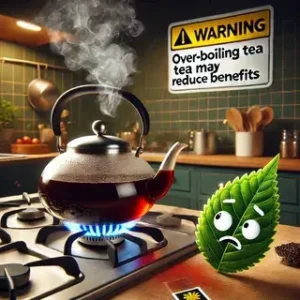How Much Caffeine is in a Cup of Coffee
For many coffee lovers, caffeine is a born bodily functioning energizer. It is one of the first foods served at breakfast and a major source of energy consumed at midday. However, how much caffeine is present in each cup? As someone who consistently consumes their recommended daily intake of coffee in the morning, I have spent the last few years researching this particular topic to ensure you are fully informed about the composition of caffeine, as well as its benefits and drawbacks, as well as how it affects the human body.
Common inquiries concerning caffeine are addressed on this page, including how much is safe, how different caffeine levels are, and whether or not it’s healthful. Now let’s review the information you need to know about caffeine and dig right in.
Is 200mg of Caffeine a Lot?
In my experience, A 200-milligram caffeine content is considered moderate but it also depends on one’s tolerance to it. In some other cases, for instance, 200 mg will serve as a solid energy booster, but in other cases, it might be too much. Usually, this amount can be associated with about two normal-sized cups of brewed coffee or one double espresso and drinks.
More precisely, a dose of 200 mg is easily absorbed by the body and fits comfortably within the recommended maximum and safe amount for most adults, which in this case by the FDA is equal to 400mg per day. Spacing a drink throughout the day provides a sense of relaxation without the extreme stimulation associated with a strong cup of coffee. Some people, however, may be affected by this dose – for example, caffeine-sensitive persons or people with health disorders have difficulties tolerating this amount.
Quick Tip: It’s always helpful to pay attention to how your body responds to caffeine. When I had my first 200 mg coffee shot, I felt a bit jittery because I wasn’t used to it, but over time, I found ways to balance it with food and hydration.
How Much Caffeine is in a Normal Cup of Coffee?
Depending on the type of coffee, serving size, and brewing technique, a typical cup of coffee can have a very different amount of caffeine in it. The average caffeine level of several varieties of coffee is broken down below:
| Type of Coffee | Caffeine Content (per 8 oz) |
|---|---|
| Brewed Coffee (Drip) | 80-100 mg |
| Espresso (1 oz shot) | 63 mg |
| Instant Coffee | 30-90 mg |
| Cold Brew (8 oz) | 100-200 mg |
| Decaf Coffee | 2-5 mg |
Most standard coffee cups contain 8 ounces (237 ml) of liquid, with caffeine levels ranging from 80 to 100 mg. However, drinks like cold brew may have a higher concentration of caffeine, depending on how they’re prepared.
I usually consume about 90 mg of caffeine per 8-ounce cup when I prepare my morning coffee using a standard drip method. If you enjoy larger servings (like a 16 oz mug), you might be getting closer to 200 mg per cup.
How Much Caffeine is in a Coke?
The fact that Coca-Cola and other soft drinks contain caffeine could surprise you. Coca-Cola drinks contain a considerable amount of caffeine, even though a cup of coffee contains a greater dose. This is a brief analogy:
| Beverage | Caffeine Content |
|---|---|
| Coca-Cola (12 oz) | 34 mg |
| Diet Coke (12 oz) | 46 mg |
| Pepsi (12 oz) | 38 mg |
| Coffee (8 oz) | 80-100 mg |
As you can see, Coca-Cola contains 34 mg of caffeine per 12-ounce can, which is significantly lower than the caffeine found in a standard cup of coffee. However, if you drink multiple cans throughout the day, the caffeine can add up quickly.
From my experience, cola drinks don’t deliver the same energy boost as coffee. I usually prefer a cup of coffee for sustained energy, but if I need a lighter caffeine intake, a can of Coke can do the trick.
How Much Caffeine Is Safe?
The FDA recommends that adults consume no more than 400 mg of caffeine per day, which is roughly equivalent to:
- 4-5 cups of brewed coffee
- 2-3 energy drinks
- 8-10 cans of Coke
With that being said, there is a variance in how people tolerate caffeine. For instance, I have observed that some acquaintances of mine can tolerate five cups of caffeine a day without any strain, while others get jittery after just one cup. I find it necessary to keep track of one’s response to caffeine and adjust the consumption levels accordingly.
For pregnant women, the recommended limit is 200 mg per day since excess caffeine can affect fetal development. Similarly, individuals with heart conditions or anxiety disorders should be cautious with their caffeine intake.
Is Caffeine Healthy?
Caffeine offers several health benefits when consumed in moderation:
- Improved Mental Alertness: Caffeine, in my experience, keeps me focused, especially during lengthy workdays.
- Boosts Physical Performance: Caffeine is a common tool used by athletes to increase their strength and endurance.
- May Lower Disease Risk: Research indicates that consuming coffee may lower the chance of developing several diseases, such as Alzheimer’s and Parkinson’s.
However, too much caffeine can lead to side effects, including:
- Insomnia
- Anxiety and Restlessness
- Increased Heart Rate
From my experience: Moderation is the key to reaping the benefits of caffeine without the drawbacks. It works well for me to keep my consumption to about 300 mg per day, as long as it doesn’t interfere with my sleep or make me anxious.
The Amount of Caffeine in a Cup of Coffee
To summarize, the amount of caffeine in coffee can vary depending on multiple factors, such as the brewing method, type of beans, and serving size. Here’s a handy chart to give you a clearer picture:
| Coffee Type | Caffeine per 8 oz |
|---|---|
| Brewed Coffee (Drip) | 80-100 mg |
| Espresso (1 oz) | 63 mg |
| Instant Coffee | 30-90 mg |
| Decaf Coffee | 2-5 mg |
| Cold Brew | 100-200 mg |
Conclusion
In conclusion, it’s critical to understand how much caffeine is in coffee and how it affects intake because doing so will enable one to choose their consumption more wisely. In actuality, most people can tolerate 200 mg of caffeine and can safely increase their intake. However, be mindful of your body’s response and adjust your intake as needed.
Knowing how much caffeine is in an alcoholic beverage—be it a stylish cold coffee drink, a can of Coke, or a hot cup of brewed coffee—allows you to consume alcohol in moderation. What about me? I still prefer coffee to other drinks when I need energy, but I try to limit how much I consume to avoid any negative consequences.
And never forget that the key to utilizing caffeine to get its benefits without experiencing any drawbacks is moderation. Try as many various coffees as you can until you find the one that suits you best; after all, it’s an experience more than just a beverage.





Thank you for your articles. They are very helpful to me. May I ask you a question?
I’m so in love with this. You did a great job!!
Thanks for posting. I really enjoyed reading it, especially because it addressed my problem. It helped me a lot and I hope it will help others too.
you can also read more articles for more information
Thank you for writing this post!
I enjoyed reading your piece and it provided me with a lot of value.
Thank you for your articles. I find them very helpful. Could you help me with something?